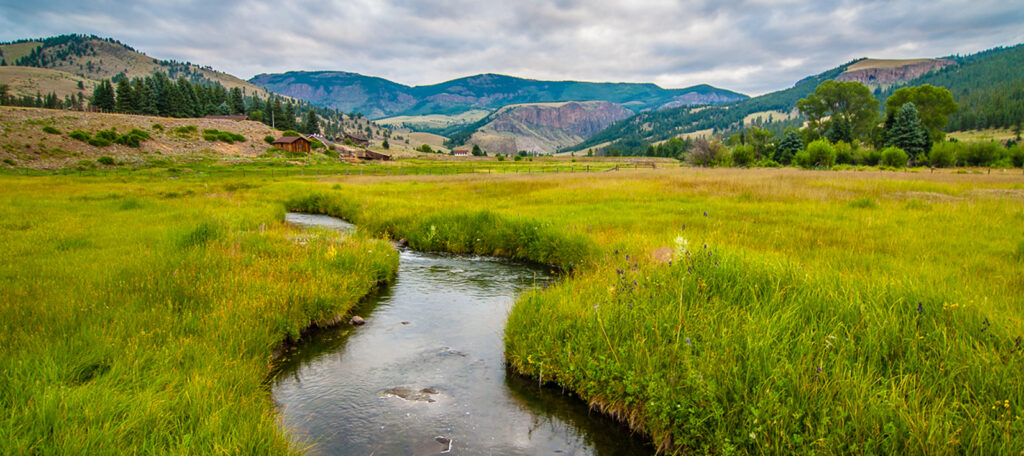The Department of the Interior is announcing a funding opportunity through President Biden’s Investing in America agenda for ecosystem and habitat restoration projects in the Upper Colorado River Basin that address impacts caused by drought. These funds will help increase community and landscape resiliency while restoring habitats and assisting in species recovery. These funds are made available through the Bureau of Reclamation from the Inflation Reduction Act—the largest ever investment in climate—for use in the Upper Basin States of Colorado, New Mexico, Utah and Wyoming.
The Colorado River Basin provides water for more than 40 million people, fuels hydropower resources in seven U.S. states, is a crucial resource for 30 Tribal Nations and two states in Mexico and supports 5.5 million acres of agriculture and agricultural communities across the West, in addition to important ecosystems and endangered species. Despite improved hydrology in recent months, a historic 23-year drought has led to record low water levels at Lake Powell and Lake Mead. The Biden-Harris administration has led a comprehensive effort to address the ongoing drought, to prevent the Colorado River System’s reservoirs from falling to critically low elevations that would threaten water deliveries and power production in the region, and to ensure long-term water security in the Basin for generations to come.
“As communities across the West continue to face the impacts of prolonged and worsening drought, this funding will enhance watershed health and conservation throughout the Upper Basin,” said Secretary Deb Haaland. “Thanks to historic funding from the Investing in America agenda, the Interior Department is using every resource available to ensure the sustainability of the Colorado River system for the families, farms and economies that rely on it.”
In October 2022, the Department announced an investment from the Inflation Reduction Act in long-term system efficiency improvements across the basin, including at least $500 million in the Upper Basin States to result in additional water conservation, environmental benefits, and ecosystem and habitat restoration. Reclamation is implementing the use of these funds in two phases. For the earlier phase, Reclamation invested nearly $50 million to support the relaunch of a System Conservation Pilot Program (SCPP) in the Upper Colorado River Basin. The SCPP was administered in water years 2023 and 2024 and will conserve a total of 104,000 acre-feet of water by the end of this September. Today’s solicitation is for projects that provide environmental benefits, including ecosystem and habitat restoration.
“This phase of funding will deliver crucial environmental benefits, driving long-term conservation efforts and mitigating drought severity in each Upper Basin State,” said Reclamation Commissioner Camille Calimlim Touton. “Reclamation will continue to work collaboratively with stakeholders to leverage this once-in-a-generation investment from the Biden-Harris administration to benefit ecosystem health and water resources.”
President Biden’s Investing in America agenda represents the largest investment in climate resilience in the nation’s history and is providing much-needed resources to enhance Western communities’ resilience to drought and climate change. Through the Bipartisan Infrastructure Law, Reclamation is investing a total of $8.3 billion over five years for water infrastructure projects, including rural water, water storage, conservation and conveyance, nature-based solutions, dam safety, water purification and reuse, and desalination. The Inflation Reduction Act provides an additional $4.6 billion to strengthen drought resilience across the West.
Applicants must be a public or Tribal entity or be partnered with such an entity to implement the project. More detailed information for applicants, including additional eligibility and evaluation criteria and how to apply can be found at the Upper Colorado River Basin System Conservation and Efficiency Program website. Applications for projects will be accepted through September 27, 2024. Selections are anticipated to be made by the end of 2024 or early in 2025.










